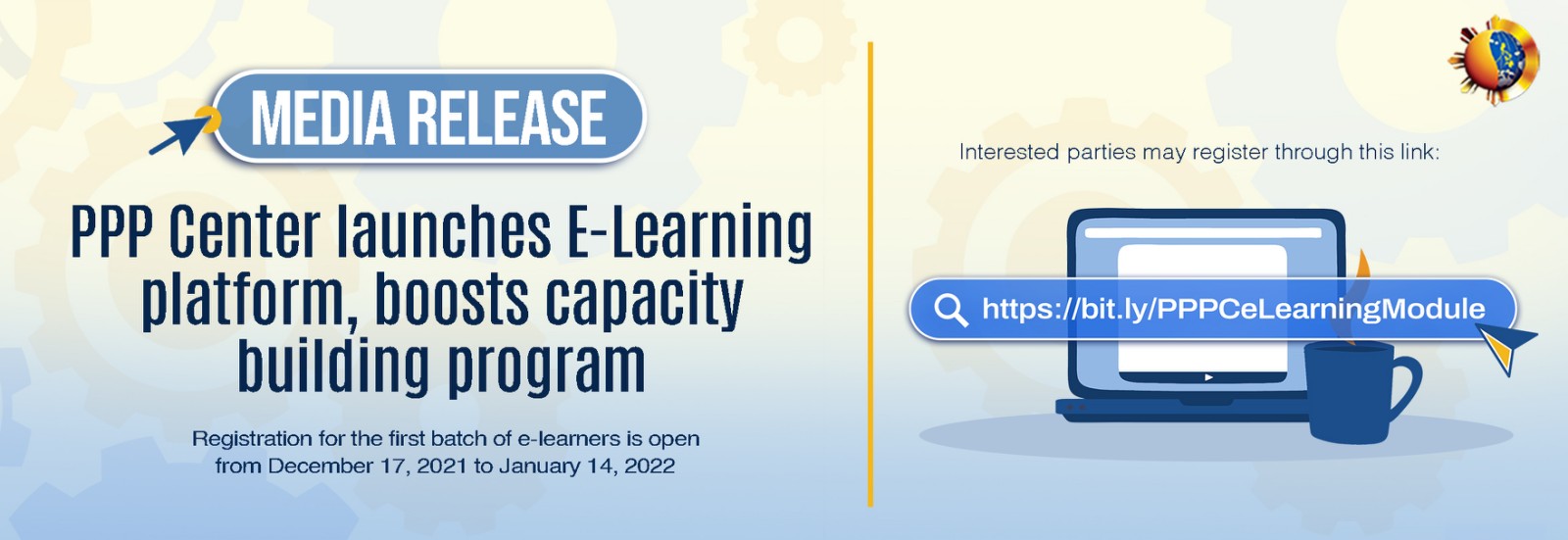
To meet the consistent demand for introductory knowledge on public-private partnerships (PPPs) in the Philippines, the PPP Center is expanding its suite of capacity building offerings through the launch of its E-Learning Modules this December.
The E-Learning platform is seen to complement the Center’s Online Capacity Building Activities (OCBA) and in-person training program and is open to all implementing agencies, which includes national government agencies (NGA), government-owned-and-controlled corporations (GOCCs), local government units (LGUs), water districts (WDs), state universities and colleges (SUCs), and institutional partners of the PPP Center.
The five-module platform is designed for self-paced learning where short animated videos and document references replace the traditional lecture arrangement. Assessments are implemented at the end of each module to ensure learning has taken place.
Once learners complete all the E-Learning Modules, they are expected to have understood the concepts and processes involve in the Philippine PPP program; applied learned PPP concepts and processes to successfully execute each stage of the Project Life Cycle based on the agency type and in accordance with the Legal Framework on PPPs; and have taken into consideration the lessons learned and best practices collected from previously awarded PPPs.
| Module 1 Introduction to the Philippine PPP Program |
Objectives
|
| Module 2 Solicited PPP Process Under the Amended BOT Law and its Revised IRR |
Objectives
|
| Module 3 Unsolicited PPP Process under the Amended BOT Law and its revised IRR |
Objectives
|
| Module 4 Joint Venture Agreements under the NEDA 2013 Revised Guidelines and Procedures |
Objectives
|
| Module 5 Joint Venture Agreements for Local Government Unitss |
Objectives
|
Registration for the first batch of e-learners is open from December 17, 2021 to January 14, 2022. The initial run of the platform will be conducted on January 17 to January 28, 2022. Interested parties may visit PPPC ELearning Modules to register.
The PPP Center serves as the central coordinating and monitoring agency for all PPP projects in the country. As part of its mandate, it provides technical assistance in all stages of the PPP process and capacity building activities to implementing agencies.

